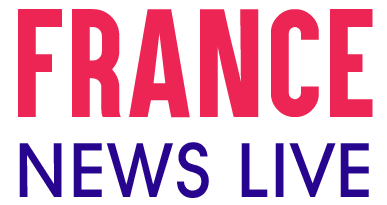Crisis Government in Panic Age (Le Monde Diplomacy) by Pierre Lambert and Gregory Redzebsky

Theo van Doesburg, “Composition XXII” (1922).
Men In 2020, the French government imposed lockdowns, empowered police to search shopping bags, closed borders, used whatever it spent on economic aid, bought supplies of masks, and forced nurses to We were able to recruit and mandate Covid passes.Fighting the pandemic. It nationalized banks during the 2008 subprime crisis, circumvented its budgetary and financial obligations as an EU member state during the 2012-2015 euro crisis, and then joined the European Central Bank (ECB). By encouraging the printing of money, it trampled on the currency stability fetish. .
Terrorism suspects were detained without trial, searches were conducted without warrants, and armored personnel carriers (as during the 2018-19 Gilets Jaunes movement) and (Russian but French) stationed on the Champs-Élysées not) the property of the oligarch was seized. Afghan and Syrian refugees in Calais are treated inhumanely, while Ukrainians are welcomed with open arms. Pro-Russian media will be banned, and the persecution of Julian Assange, who exposed US war crimes, will be tolerated.
The country can do whatever it wants. Since the mid-1980s, however, it has been portrayed as a weak, broken, overwhelmed, impotent architect of its own. ) and abandoned industrial policy by privatizing about 1,000 public enterprises (banking, insurance, heavy industry, telecommunications, energy, etc.) since 1985. etc.) have more than 1 million employees. In the process, it halved the share of paid employment in the public sector (from 10.1% in 2016 to 4.9%).
The French government handed over financial sovereignty to the ECB, cut revenue by halving the corporate tax rate (50% to 25%) and cutting the top marginal income tax rate by a third (65% to 45%). Between 1985 and 2022. By signing her EU treaty legitimizing free competition, she reduced her role as guardian of market forces. Although it no longer has a foreign policy of its own, it has sided with the United States and gently rejoined NATO’s military command, from which de Gaulle withdrew in 1966. I was satisfied with
“Dangerous Government”
How can a powerless state do this? What is a “crisis government”: Declare a state of emergency using an endless series of crisis pretexts, each requiring state intervention thing. In 2008, the U.S. government, and therefore the U.S. taxpayer, took the unprecedented step of buying back $700 billion of bad debt to save a financial system that was bankrupt as a result of deregulation. Between 2009 and 2015, EU member states allowed European institutions to violate their own economic laws. Maastricht’s standards were scrapped, public debts were shared or refinanced by her ECB with each other, banknotes were being printed en masse, and member states were on the brink of bankruptcy from the market. It was rescued and capital controls were imposed in Greece and Cyprus.
The end of the Cold War, far from the universally beneficial globalization promised by docile intellectuals, unsettled capitalism. For some parts of the world, the last 30 years have been a series of shocks. These include economic shock therapy and mass unemployment in countries of the former Soviet bloc, financial collapses in Russia and Southeast Asia in 1998, and the bursting of the Internet bubble in 2000. , the 9/11 attacks in 2001, the Argentine bankruptcy of the same year, the financial crisis of 2008-09, the Arab Spring of 2011, the European debt crisis of 2012-15, the Covid pandemic, climate disasters, Western military Intervention Somalia, Iraq, Afghanistan, Libya, etc.
Whether economic, financial, social, geopolitical, environmental or health-related, these crises have forced governments to take decisive action. Even in Germany, which is known to be cautious, this April Gazprom took control of Germania (a subsidiary of a Russian conglomerate), injected €10 billion of public money, and was destabilized by sanctions against Germany. German gas bailed out his provider Uniper. Russia. In moments of crisis, strict regulations are relaxed. ‘EU budgetary rules remain suspended in his 2023’, says French financial daily Les Echoes Announcement (24 May 2022); the European Commission “want to give countries enough freedom to mitigate the effects of war and to wean themselves from Russian hydrocarbons.”
But during a crisis, governments may need to work around the obstacles they have created. In France, the first such obstacle is the state institutions, stripped to their bones by austerity and constant reorganization. Rather than beefing up the civil service, the government hired investment bankers and management consultants, and in July he was tasked with recapitalizing EDF (Electricité de France). It was not the Ministry of Economy and Finance, but his consultant PwC, that started looking for a buyer for a medical oxygen cylinder plant in Gerza (Puy de Dôme) in February 2021. And it was Sitwell, not the government, who handled the logistics of the vaccine in December 2020.
Market rules come first
The second obstacle is the myriad of national and EU laws that subject government actions to market rules (budgetary discipline, public tenders for public contracts, etc.). Leaders who break these rules are usually seen as reckless populists. But in emergency situations, only heartless pedants stick to the rules.
Between March 2020 and May 2021, Citwell and its counterpart, JLL, will raise a total of €8 million without a call for tenders, a generally inflexible rule under the Public Procurement Act. Won the equivalent of 18 government contracts. Money magically appeared, but only in the private sector: “During the pandemic, the social affairs ministry increased its spending on strategy and organizational consulting by a factor of 20.” (1)McKinsey won a government contract worth €12.3 million, including the organization of a vaccination campaign. The consultant costs an average of seven times as much per day as a senior civil servant (€362 vs. €2,708.26 for him). A similar trend was seen in the UK between her 2016 referendum and her April 2019, when the government spent at least her £97m on consultants to prepare the UK for her Brexit. I was. (2).
Crisis governments, the supreme expression of neoliberal states and market interventionism, temporarily centralize decision-making only to re-establish their own limits in the long run. The cost of France’s economic aid and stimulus package since March 2020 has reached her €157bn. This is more than the combined budget for education, environment, defense, police and justice in 2019. The Ministry of Finance pays up to half the salaries of French employees. But this sovereign political act aimed at preserving the economy was not about allowing the public sector to control it, but rather ensuring that the private sector survived the pandemic. A solidarity fund created by the government in replenished the cash flow of more than half of all French companies. France’s debt has ballooned under the effects of these measures (furnace payments, compensation for lost sales) and the collapse of tax revenues, but the state has guaranteed €145 billion in loans by more than 700,000 private companies. ing.
Betraying the principles of the market to save its participants could be the watchword of a nation that uses public money to put out fires that threaten the private sector. The French public paid for his 2008 unconditional bank bailout with austerity, and now, nearly 15 years after the subprime crisis began, deregulated finance is flourishing. In 2020, public funding from the private sector saved small hotels, restaurants, plumbers and electricians, but public hospitals and their staff continue to suffer. A return to business as usual means austerity in the public sector, but private business leaders will still receive preferential treatment from the government. It was Macron as finance minister from 2014 to his 2015 who used central government resources to sidestep competition rules and labor laws to help build his Uber in France.
The ‘post-Covid world’ promised by President Macron
In spring 2020, unusual strains on supply chains and just-in-time delivery systems from Asia forced the French government to purchase supplies and temporarily control distribution. As we live in the “post-Covid world” promised by President Macron in April 2020, the pharmaceutical industry will not be reshaped and critical goods and services will not be under public control. I understand. Business as usual.
This operation became evident in the energy crisis caused by sanctions against Russia. In early July, the French government was considering nationalizing EDF’s debt (it privatized the profits of the national lottery in 2020), while the European Commission announced that the 27 member states’ dependence on Russian gas would end. It was re-examining its position on public subsidies, under pressure to reduce . A new National Aid Temporary Crisis Framework to provide aid to crisis-affected businesses, especially those facing high energy costs.
30 years after the fall of the Berlin Wall, “Civil Safety Commission” (3) Created by the ruling class, it presides over the fate of most Western countries. This form of government differs from the “permanent state of exception” described by the philosopher Giorgio Agamben. (Four): Both suspend the normal rule by prioritizing politics over law, while the permanent state of exception focuses on police authority and public safety. Meanwhile, France’s “private safety committees” decide everything from suppressing the gilet jaune movement to supplying toilet paper. Pandemic.
What we are seeing, according to Naomi Klein, is a “shock force” that allows governments to use the shock and turmoil that follow catastrophes to implement capitalist reforms and wage a new imperial war. Not the application of the Doctrine. The “Private Safety Committees” are already intervening in the neoliberal world to try to mitigate the chaotic economic system contradictions. But like the Shock Doctrine, the Commission’s actions mobilized the media to raise the issue to the rank of “grave danger,” creating a sense of urgency and justifying the special measures taken to address it. As the philosophers Pierre Dardot and Christian Laval have argued in relation to the 2008 financial crisis, this approach to government suggests that radical neoliberalism is a crisis. It is not a case of using . To temporarily remove the barriers to political action introduced by the neoliberal reforms themselves since World War II.
Governments in a panic and struggling to tackle their self-made problems define an era of victorious globalization in which nations have been replaced by transnational institutions, competitive markets, strong currencies, austerity and outsourcing. will probably be remembered as disadvantage of the people. Rising geopolitical tensions and the disruption they bring to global supply chains have revived political interest, a sense of sovereignty and public outrage. But that outrage still lacks a strong political form that would ensure that the “Private Safety Commission” would eventually give way to the Public Safety Commission.
https://mondediplo.com/2022/08/13state Crisis Government in Panic Age (Le Monde Diplomacy) by Pierre Lambert and Gregory Redzebsky




